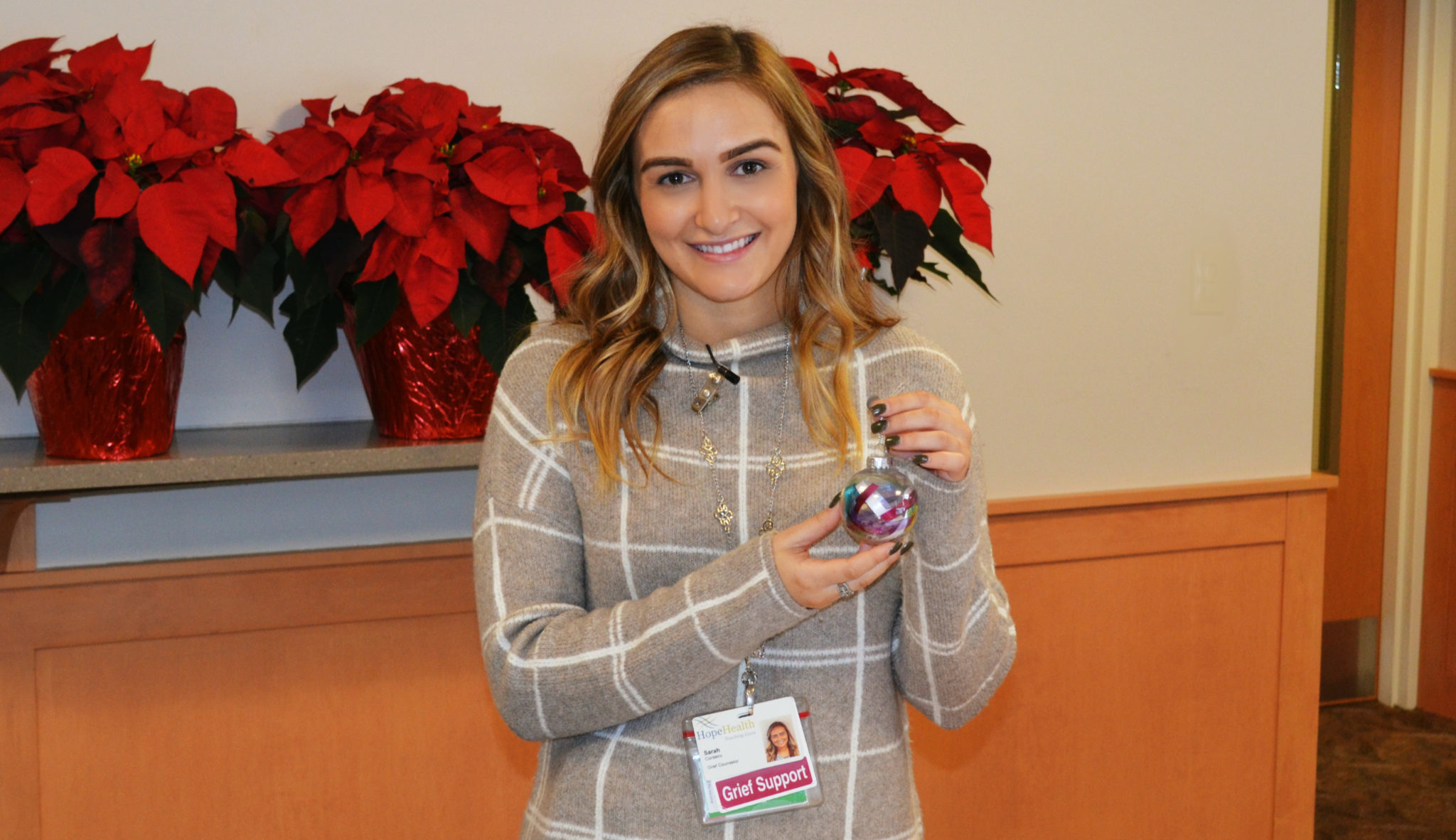Holiday remembrance activities for grieving children
Published: December 16, 2019
Holiday excitement knows no bounds during childhood. The anticipation of holiday gifts, sugary sweets, bright decorations, family traditions, time spent with relatives and school vacation is enough to fuel a highly-charged magical holiday experience that sticks with us forever. But, grieving children may need some non-traditional holiday remembrance activities to help combat the holiday blues. Unfortunately, children dealing with the loss of a loved one may not be in the emotional space to spread holiday cheer, especially if this is the first holiday that their loved one will be absent.
Sarah Cordeiro, HopeHealth grief counselor and expert on childhood grief explains, “The holidays are a time of togetherness so it’s even more painfully obvious when a loved one is missing. Everyone else is so wrapped up in the business of the holidays that grieving children often get glossed over, especially if the loss wasn’t close to the holiday season.”
There are several holiday exercises that can be incorporated into your holiday traditions to honor the child’s loved one, while keeping the spirit of celebration and their memory and love present.
The biggest barrier to appropriately allowing children to express their emotions during the holidays is the tendency to avoid talking about heavy or sad subjects during what is supposed to be a joyous time. It may seem easier not to focus on the person who has died, but adults close to grieving children should take the lead.
Sarah suggests that adults create space for children to communicate what they are feeling. Often times, children experience very conflicting emotions about their loss. She cautions that there should be some advocacy about how to handle holiday activities at school if the child’s grief is particularly acute. Having an open conversation with the child’s teacher is key. But, most importantly, those conversations need to happen with enough notice to create workable plans for the child and their teacher.
There are several holiday exercises that can be incorporated into your holiday traditions to honor the child’s loved one, while keeping the spirit of celebration and their memory and love present. These activities are often beneficial for the whole family.
Creating a holiday remembrance ornament is a particularly special activity that allows children to express their emotions within the comforts of a craft exercise. This also gives adults the opportunity to see exactly how the grieving child is feeling. The best part is that it provides a physical item for the child to keep as a positive reminder of their loved one’s memory.
Watch this video to learn how to make the holiday remembrance ornament:
Here are some other ideas to help children remember the loved one’s they can’t be with this holiday season:
- Make a memory book with the child and give them a chance to speak freely about past holidays with their loved one.
- Engage the whole family in a remembrance conversation simply by going around and telling your favorite holiday “remember the year when…” stories.
- Keep a candle lit in the love one’s memory throughout the holiday season.
- Set a place for the person at the table during the holiday mealtime to acknowledge that they will forever be loved and present in your life.
- Include some of their favorite holiday dishes in your family meal.
- Donate to a charity or a cause that was close to the loved one’s heart.
- Volunteer for the lost loved one’s community or favorite charity.
- Listen to their favorite holiday songs.
Children experience grief differently than adults and it’s important to remember that young people don’t always have the emotional tools or words to express their feelings. The best thing that the supportive adults in a grieving child’s life can do is listen, let them know it’s okay to feel their emotions and create space for memories to be an active and accepted part of the conversation.
If you or someone you love is struggling with grief, at any age, HopeHealth grief counselors are here to help. Learn more about our grief support program.

